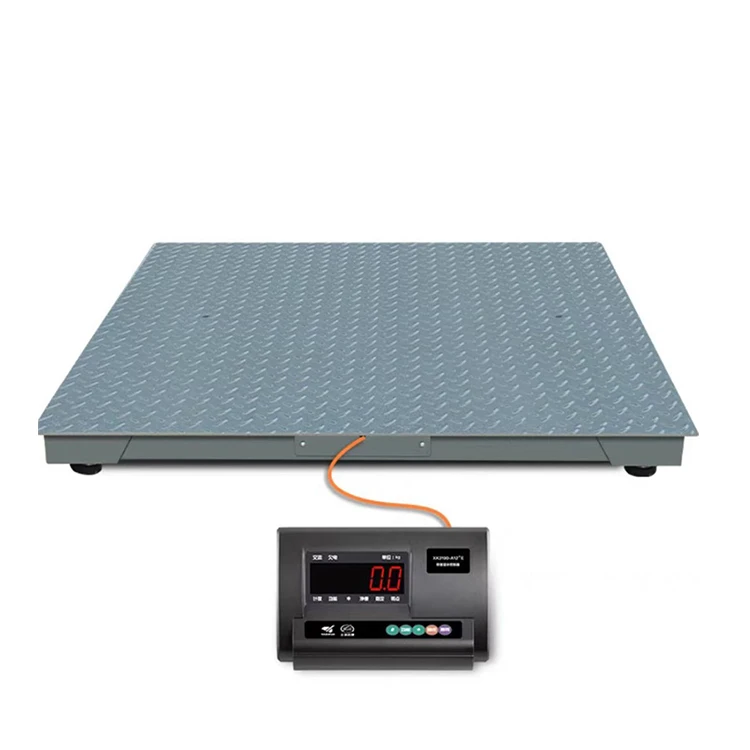When it comes to purchasing an industry-grade floor scale, there are several crucial factors to keep in mind to ensure you make the right investment. These heavy-duty scales are vital in various industrial applications, from manufacturing to shipping. To make an informed decision, it’s essential to understand what to look for when choosing an industrial scale manufacturer. This article will discuss the thirteen key considerations to guide you in selecting the perfect floor scale for your business needs.
Table of Contents
Reliability and Reputation
One of the first things to consider is the reliability and reputation of the manufacturer. Look for companies with a proven track record in producing high-quality floor scales. Check customer reviews and testimonials to gauge their reputation in the industry. A reliable manufacturer ensures the durability and accuracy of their products.
Weight Capacity
Determine the maximum weight capacity you require for your industrial floor scale. Different industries have varying needs, so selecting a scale that can handle the loads you intend to weigh is crucial. Choosing a scale with a higher capacity than needed can be costly while selecting one with insufficient capacity can lead to inaccurate measurements.
Size and Platform Design
Consider the size and design of the scale’s platform. The platform size should accommodate the items you plan to weigh comfortably. Additionally, evaluate the platform’s construction and material to ensure it can withstand the demands of your industry. A robust platform is essential for long-term reliability.
Accuracy and Precision
Precision is paramount when it comes to floor scales. Look for models that offer high levels of accuracy. Manufacturers often provide information about the scale’s accuracy, usually expressed as a percentage of the full-scale capacity. A lower percentage indicates better precision.
Durability and Build Quality
Industrial floor scales are exposed to heavy use and potentially harsh environments. Opt for scales built with durable materials such as stainless steel or heavy-duty steel. A well-constructed scale is less prone to wear and tear, ensuring a longer lifespan.
Environmental Conditions
Consider the environmental conditions in which the scale will operate. Some industries require scales to function in wet or corrosive environments. In such cases, it’s essential to choose a scale with the appropriate level of protection, such as IP ratings for water and dust resistance.
Calibration and Maintenance
Regular calibration and maintenance are vital to keep your floor scale accurate and reliable. Check if the manufacturer offers calibration services or provides clear instructions on how to calibrate the scale. Easy maintenance procedures can save you time and money in the long run.
Connectivity and Integration
In today’s digital age, connectivity and integration capabilities can be significant advantages. Some industrial scales come with features like USB ports or wireless connectivity options. Consider whether you need these features for data collection and integration with your existing systems.
Price and Budget
Determine your budget for an industrial floor scale. While it’s tempting to opt for the cheapest option, keep in mind that quality and reliability often come at a price. Balance your budget constraints with your requirements to find the best value for your investment.
Warranty and Support
Assess the warranty and customer support offered by the manufacturer. A solid warranty can provide peace of mind in case of unexpected issues. Additionally, responsive customer support can be invaluable if you encounter any problems or have questions about your scale.
Portability and Mobility
Depending on your operational needs, consider whether portability and mobility are essential features for your floor scale. Some scales come with built-in wheels or handles, making them easier to move around your facility.
Integration with Software
If you rely on specific software for data management and analysis, ensure that the floor scale you choose is compatible with the software you use. Seamless integration can streamline your workflow and enhance efficiency.
Future Expansion
Think about your future needs and whether the scale you select can accommodate them. Consider factors such as potential changes in your business’s production volume or the need for additional features as you grow.
Investing in an industry-grade floor scale is a significant decision for any business. To make the right choice, carefully consider factors such as reliability, weight capacity, size, accuracy, durability, environmental suitability, calibration, connectivity, budget, warranty, portability, software integration, and future expansion capabilities. Doing so ensures that the industrial scale you choose meets your specific needs and helps streamline your operations effectively. Remember, choosing the right industrial-scale manufacturer is the first step towards making a wise investment in your business’s success.

